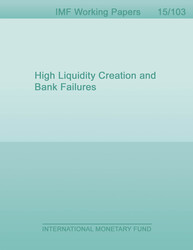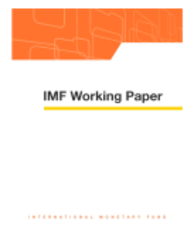
High Liquidity Creation and Bank Failures
Do They Behave Differently?
We formulate the "High Liquidity Creation Hypothesis" (HLCH) that a proliferation in the core activity of bank liquidity creation increases failure probability. We test the HLCH in the context of Russian banking, which provides a natural field experiment due to numerous failures experienced over the past decade. Using Berger and Bouwman's (2009) liquidity creation measures as a comprehensive proxy for overall bank output, we find that high liquidity creation significantly increases the probability of bank failure; this finding survives multiple robustness checks. Our results suggest that regulatory authorities can mitigate systemic distress and reduce the costs of bank failures to society through early identification of high liquidity creators and enhanced monitoring of their funding and investment activities.
Publication date: May 2015
ISBN: 9781475581805
$20.00
Add to Cart by clicking price of the language and format you'd like to purchase
Available Languages and Formats
| English |
Prices in red indicate formats that are not yet available but are forthcoming.
Topics covered in this book
This title contains information about the following subjects.
Click on a subject if you would like to see other titles with the same subjects.
Economics- Macroeconomics , Economics / General , International - Economics , Liquidity Creation , Bank Failures , bank , banks , loans , capital , Government Policy and Regulation
Summary



